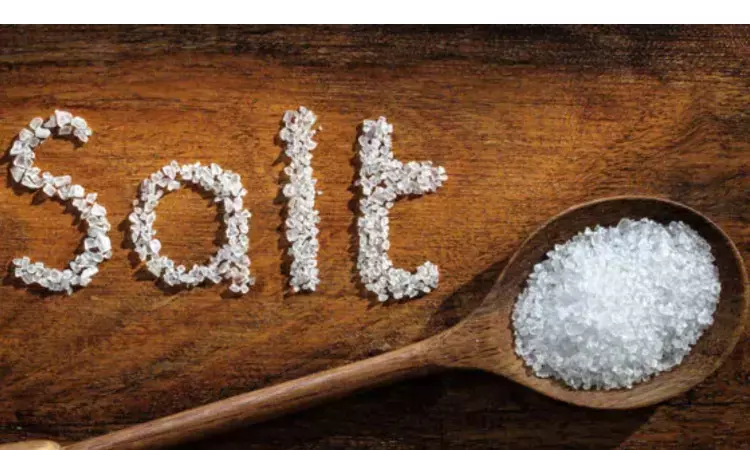- Home
- Medical news & Guidelines
- Anesthesiology
- Cardiology and CTVS
- Critical Care
- Dentistry
- Dermatology
- Diabetes and Endocrinology
- ENT
- Gastroenterology
- Medicine
- Nephrology
- Neurology
- Obstretics-Gynaecology
- Oncology
- Ophthalmology
- Orthopaedics
- Pediatrics-Neonatology
- Psychiatry
- Pulmonology
- Radiology
- Surgery
- Urology
- Laboratory Medicine
- Diet
- Nursing
- Paramedical
- Physiotherapy
- Health news
- Fact Check
- Bone Health Fact Check
- Brain Health Fact Check
- Cancer Related Fact Check
- Child Care Fact Check
- Dental and oral health fact check
- Diabetes and metabolic health fact check
- Diet and Nutrition Fact Check
- Eye and ENT Care Fact Check
- Fitness fact check
- Gut health fact check
- Heart health fact check
- Kidney health fact check
- Medical education fact check
- Men's health fact check
- Respiratory fact check
- Skin and hair care fact check
- Vaccine and Immunization fact check
- Women's health fact check
- AYUSH
- State News
- Andaman and Nicobar Islands
- Andhra Pradesh
- Arunachal Pradesh
- Assam
- Bihar
- Chandigarh
- Chattisgarh
- Dadra and Nagar Haveli
- Daman and Diu
- Delhi
- Goa
- Gujarat
- Haryana
- Himachal Pradesh
- Jammu & Kashmir
- Jharkhand
- Karnataka
- Kerala
- Ladakh
- Lakshadweep
- Madhya Pradesh
- Maharashtra
- Manipur
- Meghalaya
- Mizoram
- Nagaland
- Odisha
- Puducherry
- Punjab
- Rajasthan
- Sikkim
- Tamil Nadu
- Telangana
- Tripura
- Uttar Pradesh
- Uttrakhand
- West Bengal
- Medical Education
- Industry
Partial substitution of dietary salt with potassium-enriched salt may reduce stroke, death: Study

Australia: A recent study has claimed that even a partial replacement of regular salt with potassium-enriched salt can lead to significant health gains.
The study, published in the journal Hypertension, found that the incomplete replacement of dietary salt with potassium-enriched substitute led to reduced risk for major cardiovascular (CV) events, stroke, and death in Chinese adults. These are the results from the post hoc analysis of the Salt Substitute and Stroke Study (SSaSS).
The Salt Substitute and Stroke Study (SSaSS) has recently shown the definitive effects of a potassium-enriched salt on death and cardiovascular outcomes.
Interventions that increase dietary potassium reduce dietary sodium, or both have significant potential for cardiovascular protection and lowering blood pressure (BP). An average intake of 4 g/day is indicated by worldwide estimates, which is twice the maximum intake recommended by the World Health Organization, i.e. 2g per day. Also, in many countries, the average daily potassium intake is lower than the recommended level of WHO, which is 3.5 g/day (90 mmol/day).
SSaSS was a cluster-randomized, open-label trial in which 20,995 adults were enrolled. Enrolled adults were aged 60 years and older with high BP living in rural China with a history of stroke (mean age 65 years, 59.3% with uncontrolled high BP; 72.6% with a history of stroke). Participants were randomly assigned to either regular salt or a salt substitute comprising 25% potassium chloride and 70% sodium chloride.
For the study, the researchers collected baseline and annual 24-hour urine samples from a subgroup of SSaSS participants throughout the 5-year follow-up. They calculated the corresponding projected sodium intake differences between groups and compared them with the observed difference. Between the two groups, the mean difference in 24-hour potassium excretion was used for estimating the quantity of potassium-enriched salt consumed in the intervention group.
The study revealed the following findings:
· The potassium-enriched salt group had a mean increase in 24-hour urinary potassium excretion of 0.80 g/d compared to the regular salt group, which equates to the consumption of 8.8 g/d of potassium-enriched salt.
· The projected difference in 24-hour urinary sodium excretion was −0.79 g/d based on 8.8 g/d potassium-enriched salt consumption. This compares to an observed difference of −0.35 g/d and indicates that 72% of baseline regular salt intake was replaced by potassium-enriched salt.
"The smaller than anticipated between-group difference in sodium excretion could be likely due to the joint use of regular salt and potassium-enriched salt in the intervention group," the researchers wrote. "Our findings indicate that even an incomplete replacement of regular salt with potassium-enriched salt can deliver significant health gains."
Reference:
Yin X, Paige E, Tian M, Li Q, Huang L, Yu J, Rodgers A, Elliott P, Wu Y, Neal B. The Proportion of Dietary Salt Replaced With Potassium-Enriched Salt in the SSaSS: Implications for Scale-Up. Hypertension. 2023 Jan 11. doi: 10.1161/HYPERTENSIONAHA.122.20115. Epub ahead of print. PMID: 36628969.
Dr Kamal Kant Kohli-MBBS, DTCD- a chest specialist with more than 30 years of practice and a flair for writing clinical articles, Dr Kamal Kant Kohli joined Medical Dialogues as a Chief Editor of Medical News. Besides writing articles, as an editor, he proofreads and verifies all the medical content published on Medical Dialogues including those coming from journals, studies,medical conferences,guidelines etc. Email: drkohli@medicaldialogues.in. Contact no. 011-43720751


